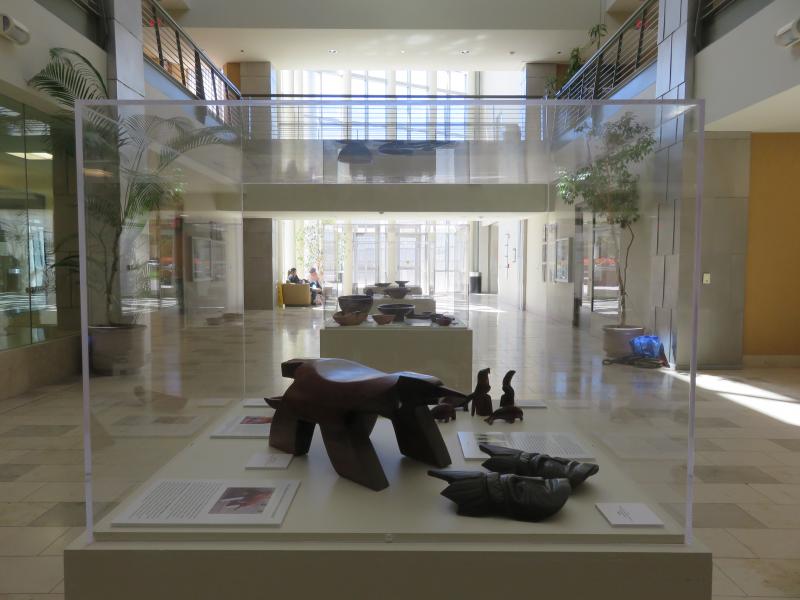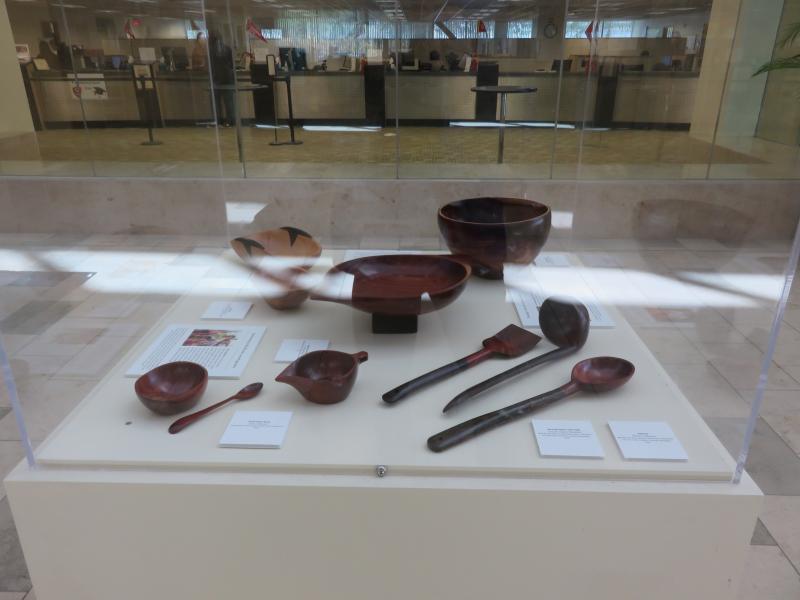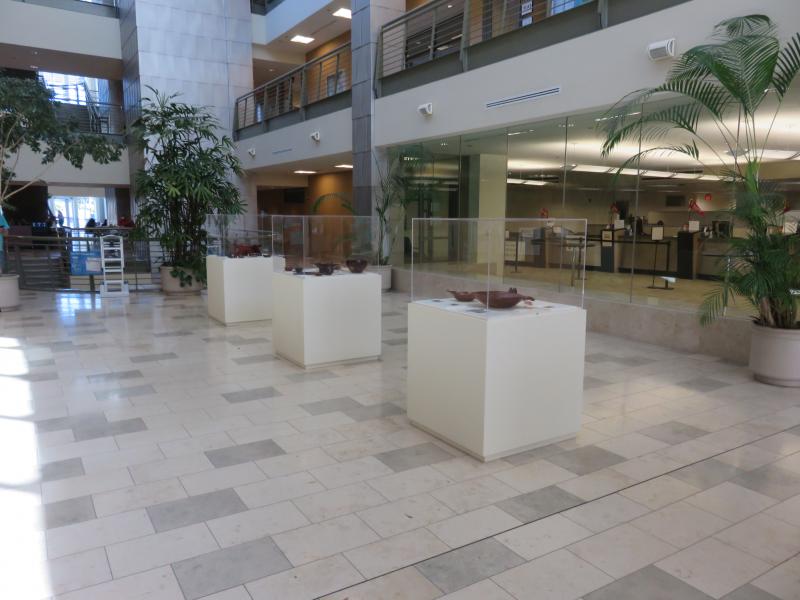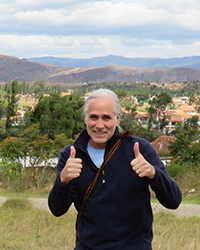
College
Department
Phone
Location
I am a cultural anthropologist with a strong applied and interdisciplinary focus. My specializations in cultural anthropology are economic anthropology and ecological anthropology. I have conducted research in the Brazilian and Colombian Amazon regions where I have worked with colonist farmers, rubber tappers and indigenous populations. I am interested in how cultural anthropology can inform our understanding of conservation and development challenges in the Amazon, and contribute to the challenge of solving them. I have a background in marketing (B.S., Miami University, Oxford, Ohio) and international development (M.A., American University, Washington, DC), and value an interdisciplinary approach that recognizes that other disciplines, such as economics, ecology, and marketing can help us better understand the dynamic relationship among culture, economy, and the environment.
Cultural anthropology, economic anthropology, conservation and development, Latin American Studies, Brazilian and Colombian Amazon.
Economic Anthropology, Ethnographic Research Methods, Peoples and Cultures of the Amazon, Anthropology and Global Issues, Anthropology of Religion, Growth of Anthropology, Anthropology of Gender and Sexuality, and Introduction to Cultural Anthropology.
Changing Rubber Tapper Economy and Culture in the Brazilian Amazon
My primary research in the Brazilian Amazon is working with rubber tappers in the Chico Mendes Extractive Reserve in Acre, Brazil, in the southwest Brazilian Amazon. Acre was once the world’s leading supplier of rubber extracted from natural rubber tree stands; the area was a critical supplier of rubber during the industrial revolution at the turn of the 20th Century and during World War II. I examined how livelihoods continue to evolve in the forest, focusing on the changing economic activities of rubber tappers as they engage markets in new ways, and how these changes affect traditional extractive activities, such as rubber tapping and collection of Brazil nuts, as well as rubber tapper culture and identity.
Exploring Forest Community-Market Interactions in Acre, Brazil
This project examined the interaction between forest communities and urban market tradesmen (and women) and businesses. It was conducted in collaboration with the Acre Research and Extension in Agroforestry Group (PESACRE), a local non-governmental organization which works with forest communities in the region to promote community development, sustainable agroforestry and conservation. Our research examined how communities and enterprises interact at the business trade fair of the FLORA fair, a forest product trade fair held in Rio Branco, which brings together community leaders and urban entrepreneurs in a relaxed business setting to negotiate contracts for forest-based food and artisan products. We trained students from the Federal University of Acre (UFAC) and the College of the Western Amazon (FAAO) to help conduct the research. One result of our FLORA Fair activities is an illustrated booklet entitled, “How to Participate in a Business Trade Fair: Suggestions for Communities and Associations” (published in Portuguese). This booklet (https://iieb.org.br/wp-content/uploads/2019/02/public_cartilha_rodada_ne... ) was reprinted (12,000 copies) and distributed for community use at trade fairs throughout Brazil.
Artisan Woodcarvers in the Colombian Amazon
This research examines the impact of a growing ecotourism market on indigenous artisan woodcarvers in the multiethnic indigenous community of Macedonia located in the Trapecio region of the southermost Colombian Amazon on the Amazon River. Macedonia is recognized nationally for its high quality wood carvings, principally using bloodwood, locally known as palo sangre (Brosimum rubescens), and has become a key regional ecotourist destination. We interviewed wood carvers from August to December 2016 to analyze how markets have reshaped the types of knowledge required of artisans–ecological, artisan production, and market knowledge–and how this knowledge is learned and transmitted.
Artisan Woodcarvers of the Colombian Amazon Exhibit
In collaboration with the Stanislaus State Art Department, from Fall 2018 through Spring 2019, woodcarvings purchased from indigenous woodcarvers from the community of Macedonia in the Colombian Amazon were put on display as part of the Mary Stuart Rogers Building Exhibition Space. The exhibit had the support of the Macedonia artisans and presented both woodcarvings and excerpts from interviews with the artisans.



Journal Articles
Wallace, R., C.V. Gomes, and N. Cooper. 2018. The Chico Mendes Extractive Reserve: Trajectories of Agro-extractive Development in Amazonia. Desenvolvimento e Meio Ambiente (Journal of Development and the Environment), 48. DOI: http://dx.doi.org/10.5380/dma.v47i0.
Minzenberg, E. and R. Wallace. 2011. Amazonian Agriculturalists Bound by Subsistence Hunting. Journal of Cultural Geography. 28(1): 99-121.
Wallace, R. 2009. Commoditizing Culture: The Production, Exchange and Consumption of Couro Vegetal from the Brazilian Amazon. Ethnology, 48(4): 295-313.
Edited Volumes
Siviero, A., D. Daly, L. C. Ming, M. Silveira and R. Wallace. 2016. Etnobotânica e Botânica Econômica do Acre (Ethnobotany and Economic Botany of Acre). Rio Branco, Acre: Editora Universidade Federal do Acre (EDUFAC). 415 pp. Il. ISBN: 978-85-8236-027-9.
Book Chapters
Wallace, R. and C.V. Gomes. 2016. O Sistema de Comércio de Produtos Florestais Não Madeireiros numa Reserva Extrativista no Acre: Revisitando o Passado para Pensar no Futuro do Extrativismo (The Market System for Non-Timber Forest Products in an Extractive Reserve in Acre: Revisiting the Past to Consider the Future of Extractivism). In Etnobotânica e Botânica Econômica do Acre. M. Siviero, L.C. Ming, M. Silveira, D. Daly and R. Wallace, Eds. Pp. 362-386. Rio Branco, Acre: EDUFAC.
Wallace, R. and E.L. Ferreira. 2016. Usos, Extração e Potencial de Produção de Frutos de Três Espécies de Palmeiras Nativas na Reserva Extrativista Chico Mendes, Acre: Implicações para a Extração Comercial (Use, Extraction and Production Potential of Three Palm Species in the Chico Mendes Extractive Reserve: Implications for Market-Oriented Extraction). In Etnobotânica e Botânica Econômica do Acre. M. Siviero, L.C. Ming, M. Silveira, D. Daly and R. Wallace, Eds. Pp. 293-303. Rio Branco, Acre: Editora Universidade Federal do Acre (EDUFAC).
Wallace, R. and E.L. Ferreira. 2016. Exploração Extrativista do Cipó Titica (Heteropsis Flexuosa (H.B.K.) Bunt., Araceae) no Acre: Manejo e Potencial do Mercado (Extractive Exploitation of Cipó Titica (Heteropsis flexuosa (H.B.K.) Bunt., Areceae) in Acre: Management and Market Potential). In Etnobotânica e Botânica Econômica do Acre. M. Siviero, L.C. Ming, M. Silveira, D. Daly and R. Wallace, Eds. Pp. 327-342. Rio Branco, Acre: Editora Universidade Federal do Acre (EDUFAC).
Schmink, M., A. Duchelle, J. Hoelle, M. Vinício d’Oliveira, J. Vadjunec, and R. Wallace. Forest Citizenship in Acre, Brazil. 2014. In Forests Under Pressure: Local Responses to Global Issues, P. Katila, G. Galloway, W. de Jong, and P. Pacheco, G. Mery, Eds. International Union of Forest Research Organizations (IUFRO) World Series Vol. 32, pp. 31-47. Vienna, Austria: IUFRO.
Wallace, R., Pereira, L., and Plowden, C. 2012. Titica. In Frutales y Plantas Útiles en la Vida Amazónica. In P. Shanley, M. Cymerys, M. Serra, & G. Medina, eds. Pp. 123-132. Rome: Food and Agricultural Organization (FAO), Center for Int’l Forestry Research (CIFOR), People and Plants Int’l (PPI).
Wallace, R., Pereira, L., and Plowden, C. 2011. Titica (Heteropsis spp.). In Fruit Trees and Useful Plants in Amazonian Life. P. Shanley, M. Cymerys, M. Serra, & G. Medina, Eds. Pp. 129-138. Rome: FAO, CIFOR and PPI.
Wallace, R., Pereira, L., and Plowden, C. 2010. Titica (Heteropsis spp.). In Frutíferas e Plantas Úteis na Vida Amazônica, 2nd Edition, P. Shanley, G. Medina, & M. Serra, Eds. Pp. 79-87. Brasília, Brazil: CIFOR.
Wallace, R., M. J. Portela da Silva, F. Lopes de Nascimento, and M. Schmink. 2008. A Feira de Produtos Florestais do Acre: Fortalecendo Espaços para Integração de Comunidades e Mercados. (The Acre Forest Products Fair: Strengthening Spaces for the Integration of Communities and Markets), In O Manejo da Paisagem, e a Paisagem do Manejo. N. Bensunan, G. Armstrong, eds. International Institute for Eduction in Brazil (IEB): Brasilia, Brazil.
Video Documentaries/Film Festivals
Wallace, R. (Director), E. Ferreira (Assistant Director), C. Noice (Editor). 2014. Cipó-Titica: Extraindo Modas da Vida na Floresta Amazônica (The Titica Vine: Extracting Livelihoods in the Amazon Rainforest). Official selection for presentation at 1st Annual Meeting of Visual Anthropology of the American Amazon, Belem, Para, Brazil, November 4-6.
Available online through open-access on YouTube:
Part 1: Sustainable Fiber Harvesting in Amazonia
Part 2: An Artisan Life in Amazonia
Articles Online
Wallace, R., D.C. Daly and M. Silveira. 2000. Developing Regional Markets for Forest Products in Southwestern Amazonia. Floristics and Economic Botany of Acre, The New York Botanical Garden, New York.
Educational and Training Material
Wallace, R. and M.J. Portela da Silva. 2005. Como Participar em uma Rodada de Negócios: Sugestões para as Comunidades e Associações (How to Participate in Business-Trade Fairs: Suggestions for Communities and Associations), Brasília: Instituto Internacional de Educação do Brasil.
